21 Old-Fashioned Manners Kids Are No Longer Taught
Can we get a little "please" and "thank you" here?

Just a few decades ago, any parent would have been quick to tell their child to sit up straight at the table and chew with their mouth closed. But today, you'd be hard-pressed to find a kid who will even make an appearance at dinner without their phone in arm's reach. When it comes to certain etiquette standards, times certainly have changed. We've called in the experts to analyze the most recent trends in manners or lack thereof. So, without any further ado here's all the old-fashioned etiquette that kids are no longer taught, but should be.
1
Writing "thank you" notes
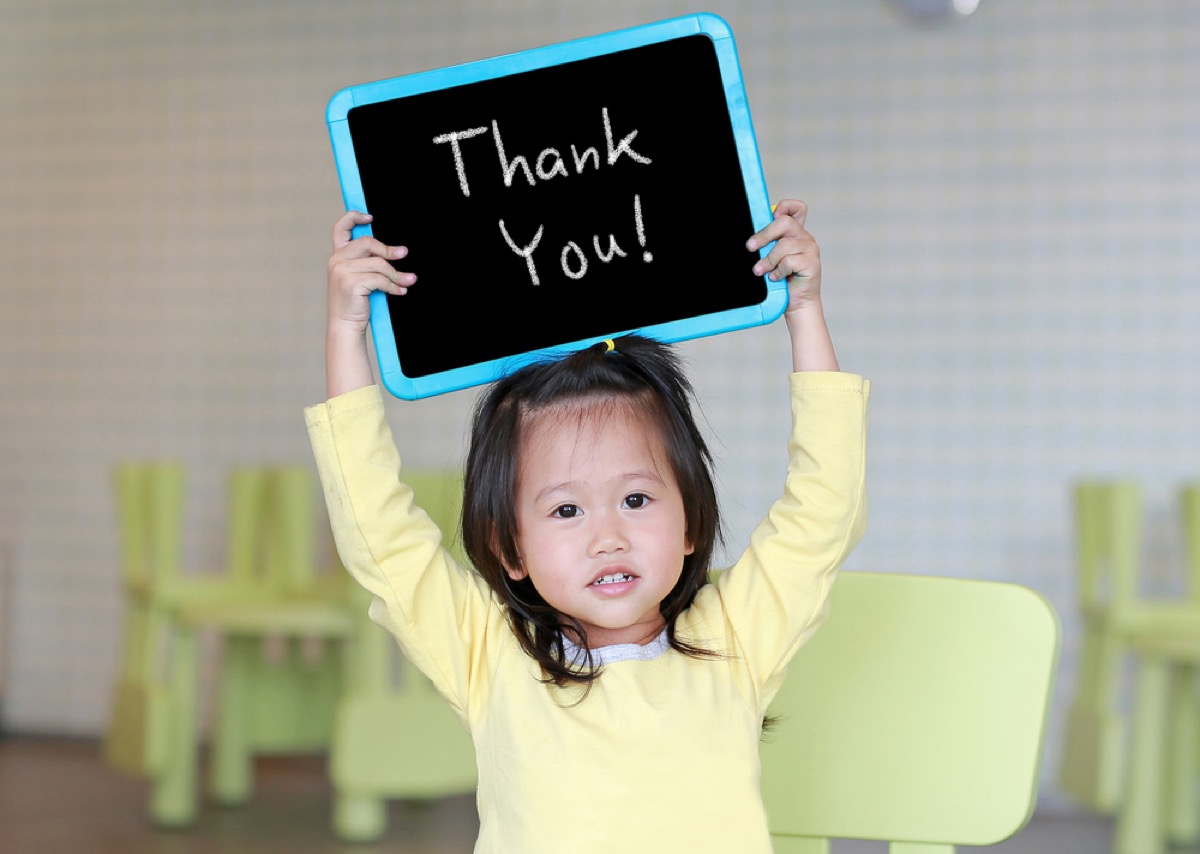
In this day and age, handwritten "thank you" notes are sometimes replaced by impersonal "thank you" texts. "Sending a quick video of the child opening the gift is a nice touch in modern times—but there is nothing quite like receiving a hand-written thank you note from a child to brighten any relative's day," says Christine Scott-Hudson, owner of the Creator Your Life Studio in Santa Barbara, California. "Have your child include some handmade artwork and allow them to write the note themselves. Explain how the sender was very thoughtful to think of them and how it is polite to receive all gifts graciously, no matter how small."
2
Addressing adults by Mr. or Miss/Mrs.
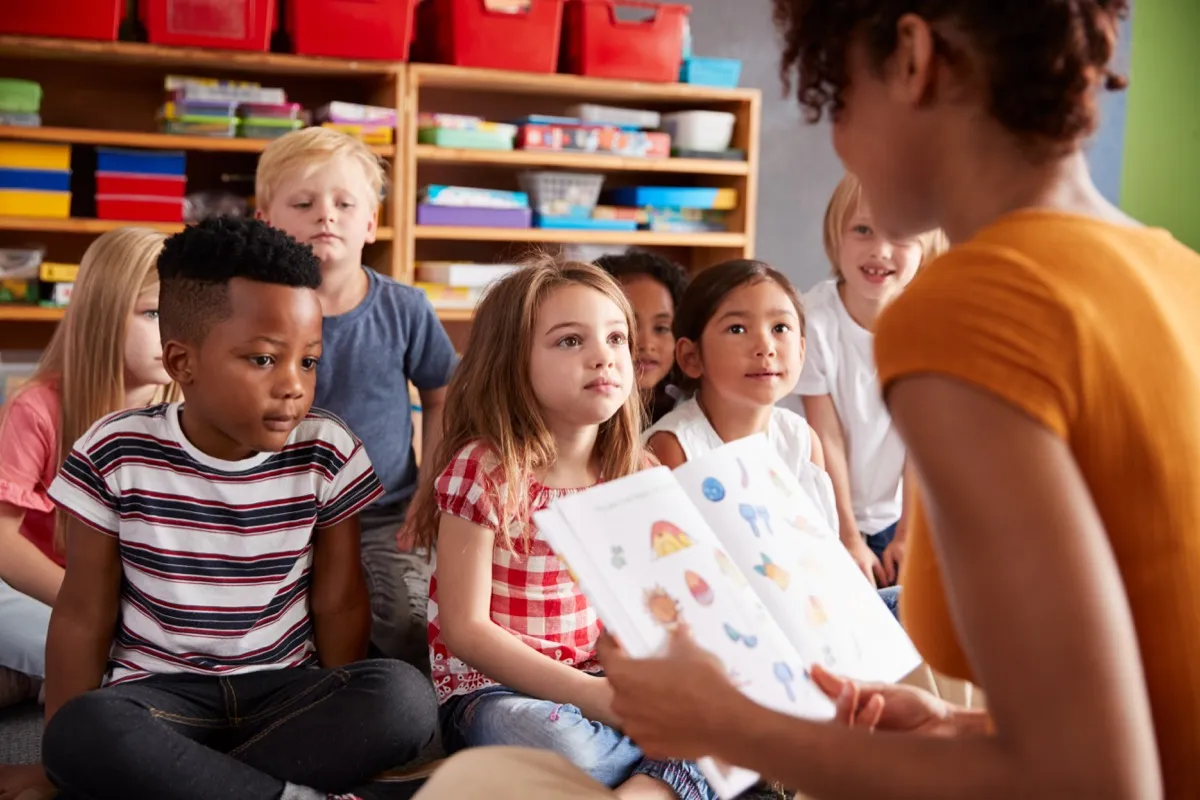
As society gets more and more casual, this piece of etiquette has fallen out of style. "Growing up, I would never have dared to call an adult by their first name," says Cendu Param, a mother, former teacher, and creator of the motherhood blog Cenzerely Yours. "It was always 'Mr. or Miss/Mrs. last name.' Other than in school, I don't really hear children using last names as a sign of respect anymore."
3
Waiting their turn to speak

Especially in a classroom setting, this practice is incredibly necessary—yet Param notes that younger generations aren't taught patience. "I would never have dared interrupt a conversation between adults when I was growing up. I would simply stand and wait until I was acknowledged. This is definitely no longer the case," she says. "Kids come storming in, demanding whatever it is they need. I have to constantly remind them to wait until I am done."
4
Standing to greet someone
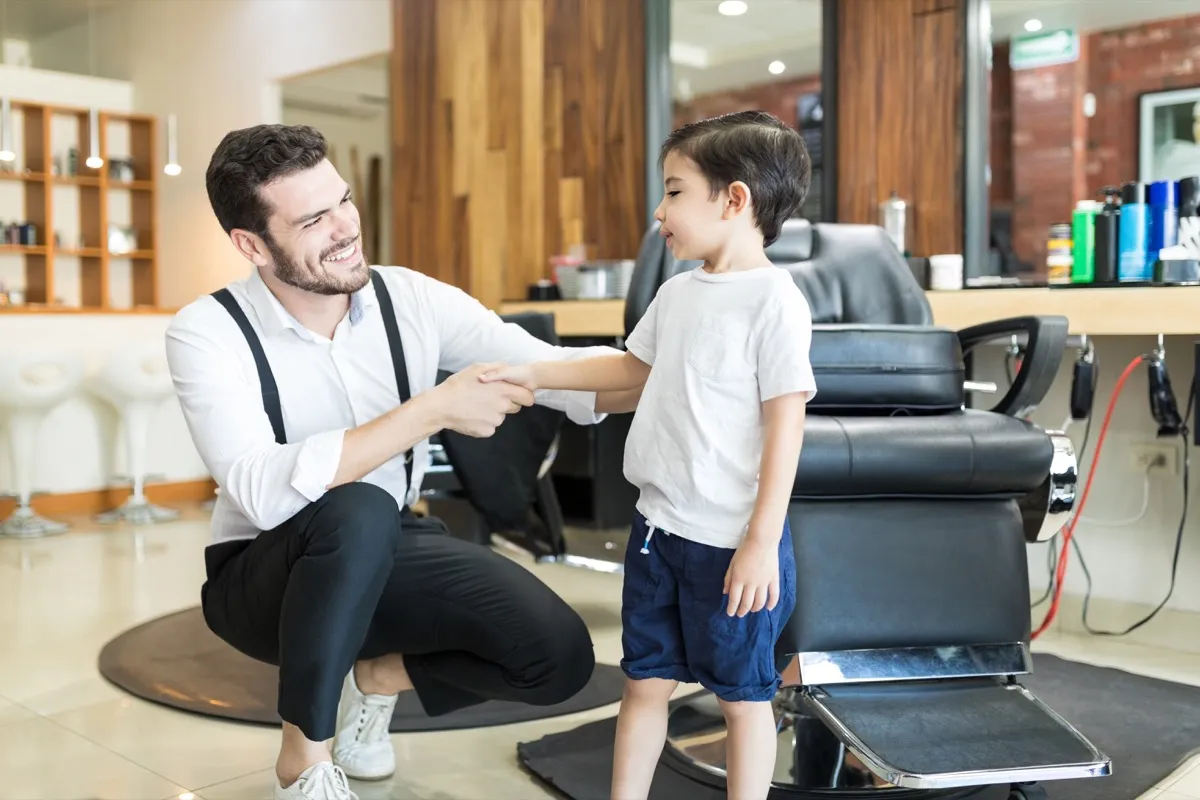
To many youngtsers, standing up to greet someone would seem extremely old fashioned. But it's a small gesture that every little one should know. "When you are meeting someone or being introduced, it used to be customary to stand up to show respect," Param says. "My parents instilled this in us from a young age. When they were in school, they were even expected to stand up in class whenever they answered a question."
5
Saying "hi" to neighbors
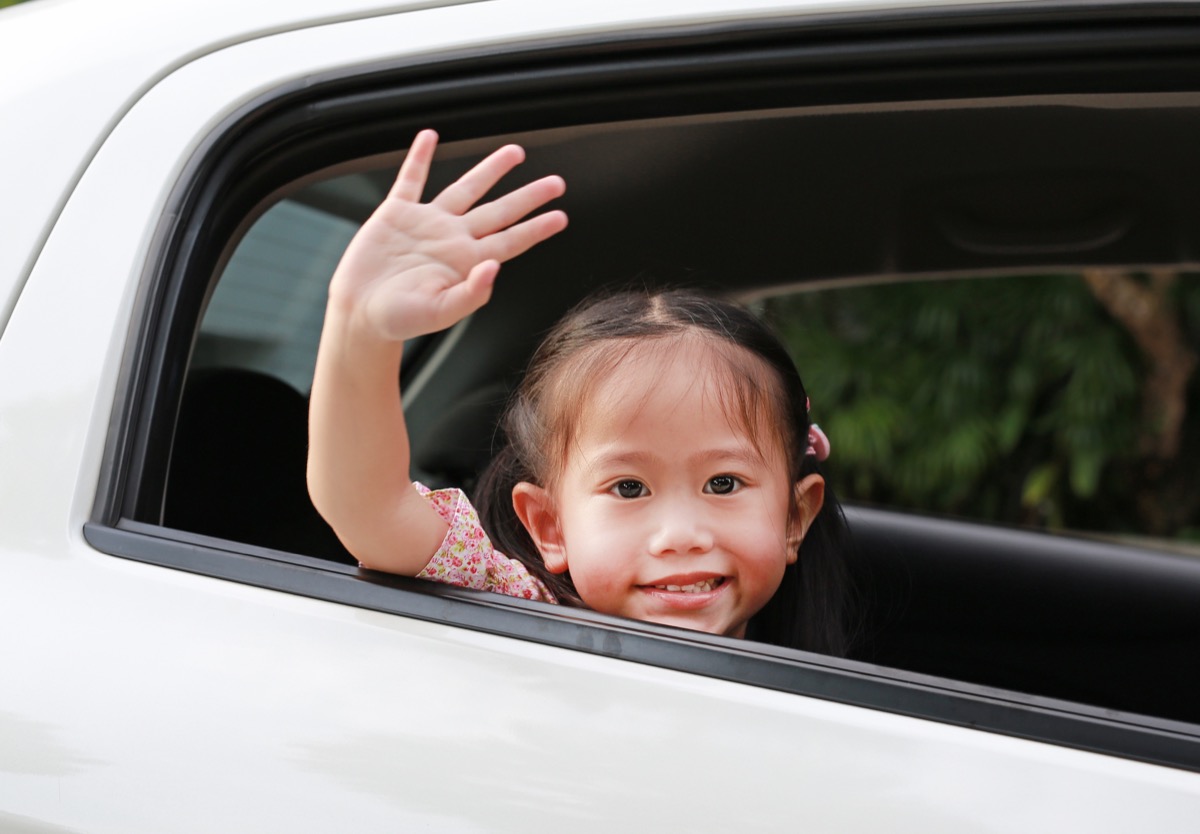
Back in the day, it was common practice to greet every passing neighbor, and occasionally, to the horror of some Gen Zers, make polite conversation with them. Now, you'd be lucky to find a young person who has ever had a single full conversation with their neighbors.
"It seems that people are no longer taught how to greet [others] in public," says Nancy Cramer, a leadership consultant and founder of Correct Course Consulting in Dallas, Texas. "When I was a kid, my grandfather would tip his hat to strangers. My dad would lift his fingers off the steering wheel in a slight wave as he passed other drivers on a country road. My grandmother always said a polite 'hello' to those she passed on the street."
But now? Well, kids can't even look up from their phones as they walk down the street!
6
Shaking hands

While it might seem stuffy in some situations nowadays, kids should still be taught to shake hands—especially with people they've just met. "Shake someone's hand when meeting them and when saying goodbye," says teacher and mother Emily Denbow Morrison. "Giving some sign of greeting to people you're meeting or reacquainting yourself with is common courtesy."
7
Putting their phone down when interacting with others

When cell phones became commonplace for teens in the late '90s, there were definitely rules about phone-free dinners. But today, that's not the case. And when you combine the influx of technology with the short attention spans of children, you have a recipe for disaster in terms of polite interactions.
"If you're in class, at the dinner table, talking with someone you just met, or visiting with family, [you should] put the cell phone down," says Denbow Morrison. "You can't learn, listen, or interact with people if your eyes are glued to a screen."
8
Covering their mouth when they cough or sneeze
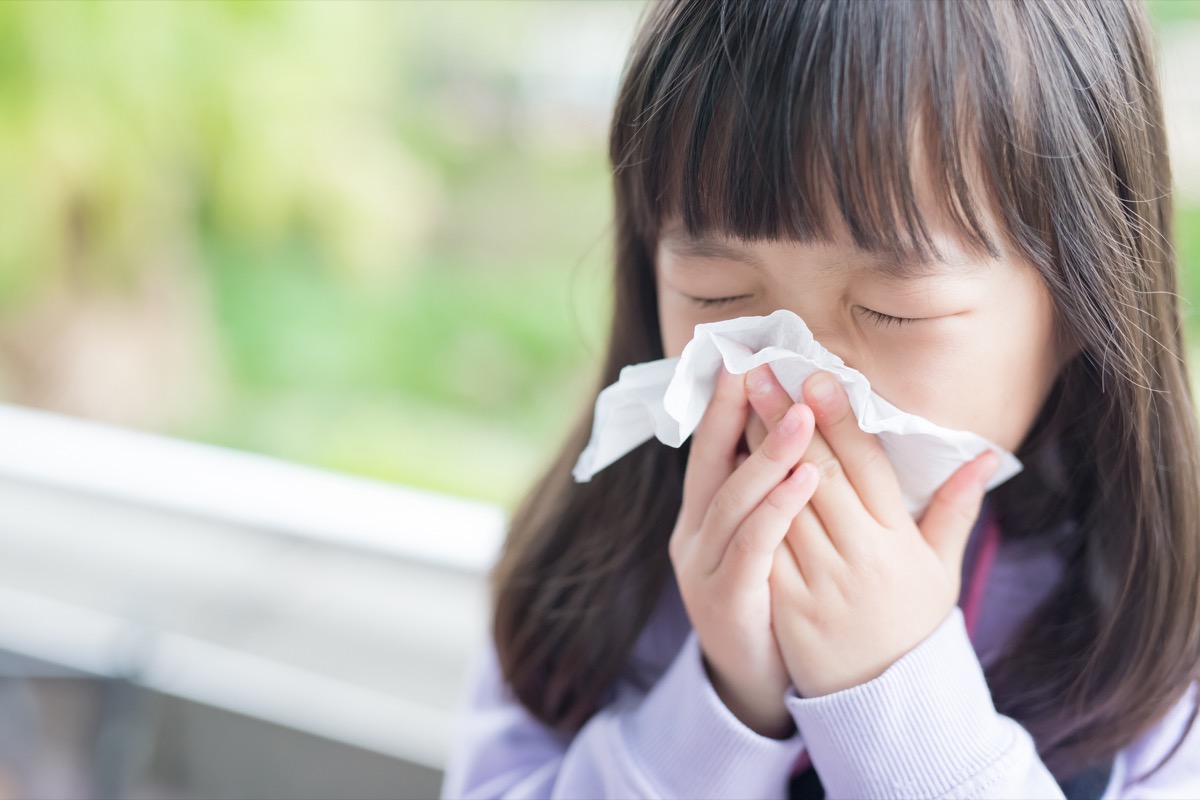
Not only is covering your mouth when you sneeze or cough the most effective way to prevent the spread of harmful bacteria, but it's also just a polite practice that kids should never forget, says Denbow Morrison. "Cover your mouth when you cough or sneeze. No one wants what you've got," she says.
9
Knocking before entering
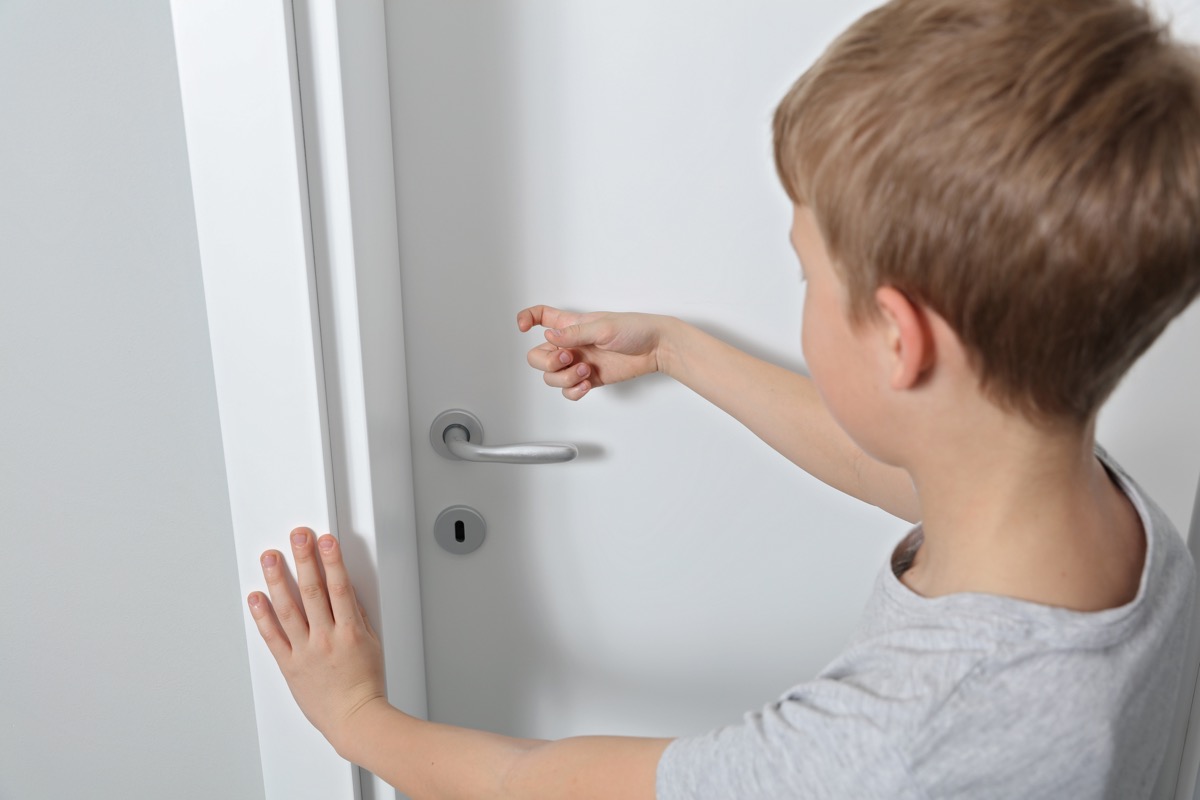
According to Param, the younger generation doesn't seem to share the same appreciation for privacy. If a door is closed, she stresses the importance of knocking before entering to avoid awkward encounters. "In fact, just knocking is not enough—you should always wait until someone tells you to come in," says Param. "You don't want to walk in on an awkward situation."
10
Making eye contact
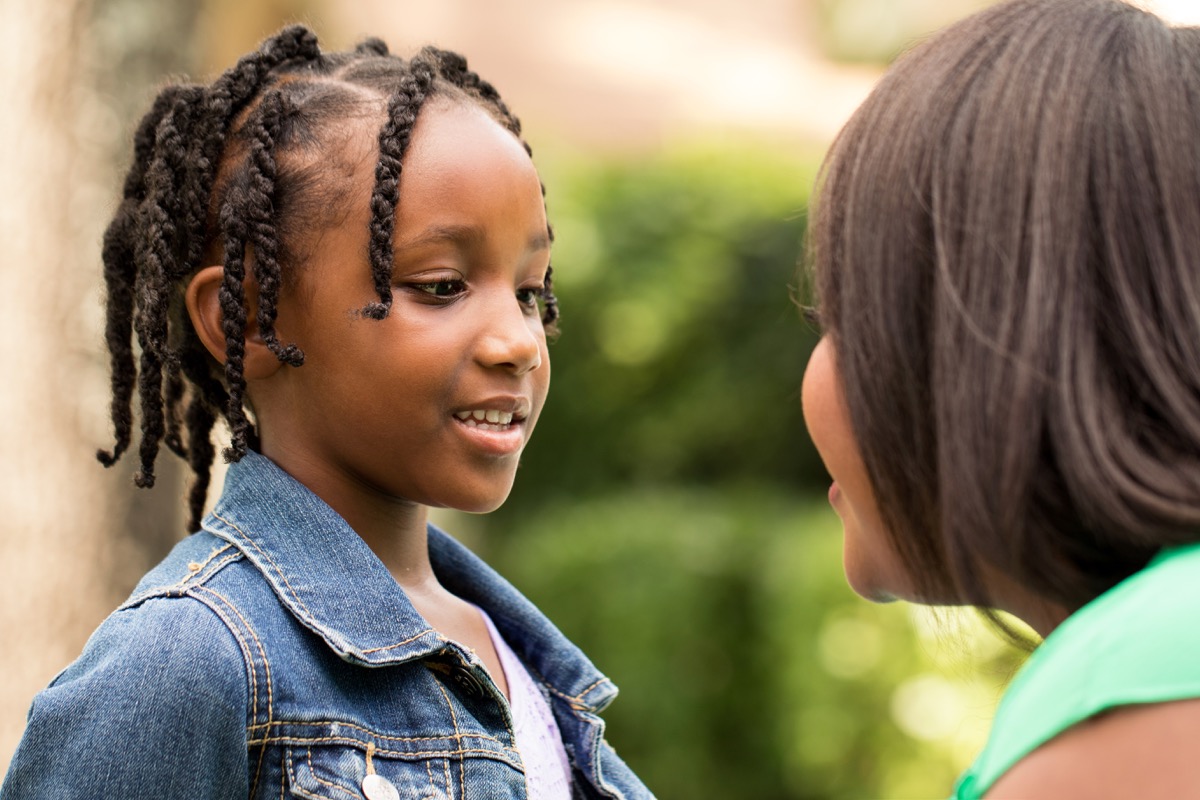
Getting young children to focus is incredibly difficult these days, but that doesn't mean kids should be free to avoid eye contact when someone is attempting to have a conversation with them. "Listening and maintaining eye contact with people is as old-fashioned as it gets," says Denbow Morrison. Param echoes that sentiment, adding, "When someone is talking to you, show that you are listening by making eye contact and paying attention."
11
Waiting to eat until everyone is served
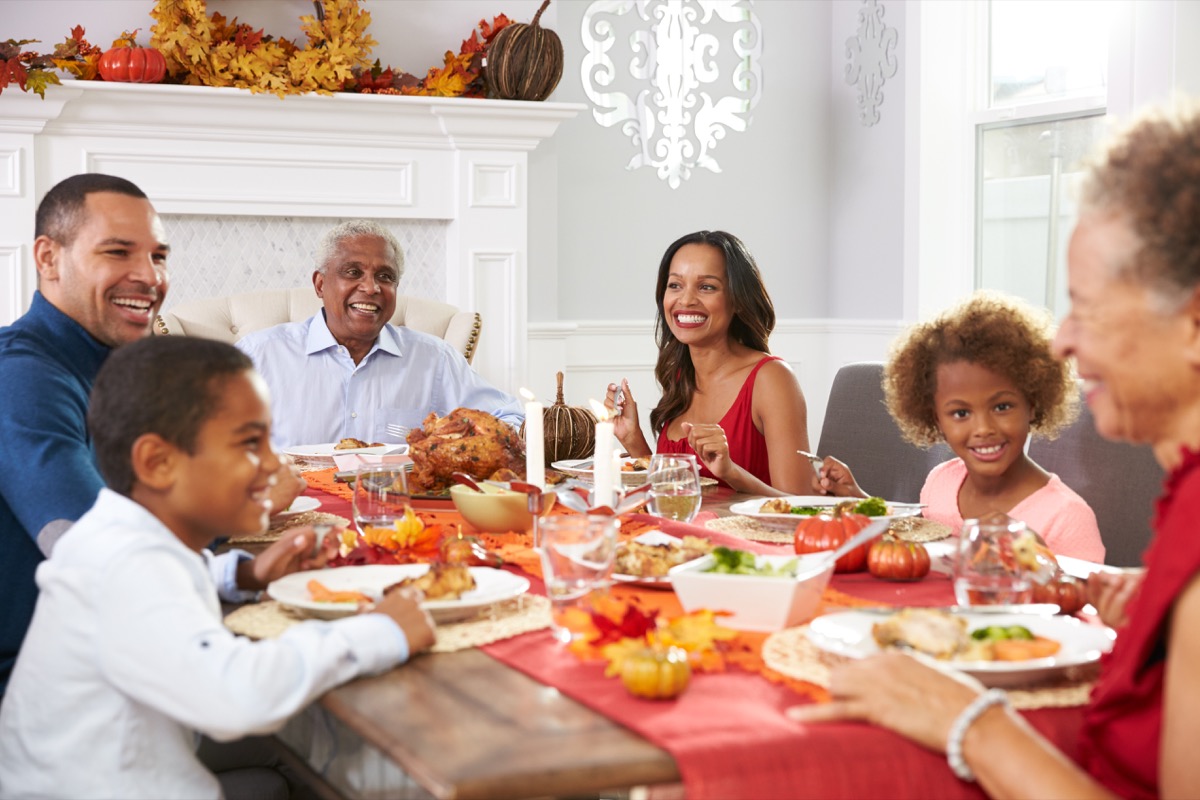
For older generations, table manners were very important, but that isn't true today. "Children are often given priority for eating a meal and are not taught to wait for everyone to be served before eating," says Amy Martin, a mother and founder of the motherhood blog Two Little Pandas.
But once they're adults, of course, that impatience is considered rude—so start enforcing the practice of waiting from a young age.
12
Not reaching across the table
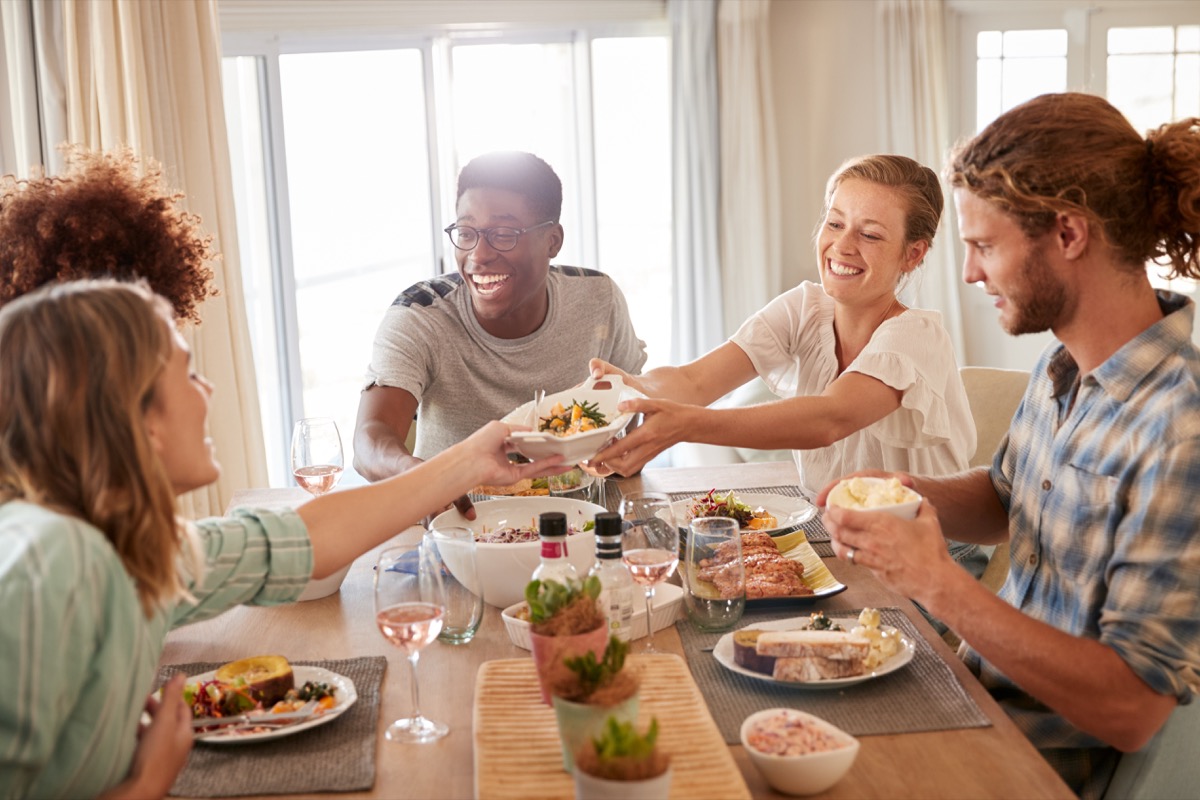
Decades ago, children were taught not to reach across the table for food. Now, Param says, parents no longer teach their children this basic table manner.
Instead of grabbing, "ask someone to pass it along to you," she says. "This is not just polite but also helps reduce unnecessary spills and accidents."
13
Taking the food they touch
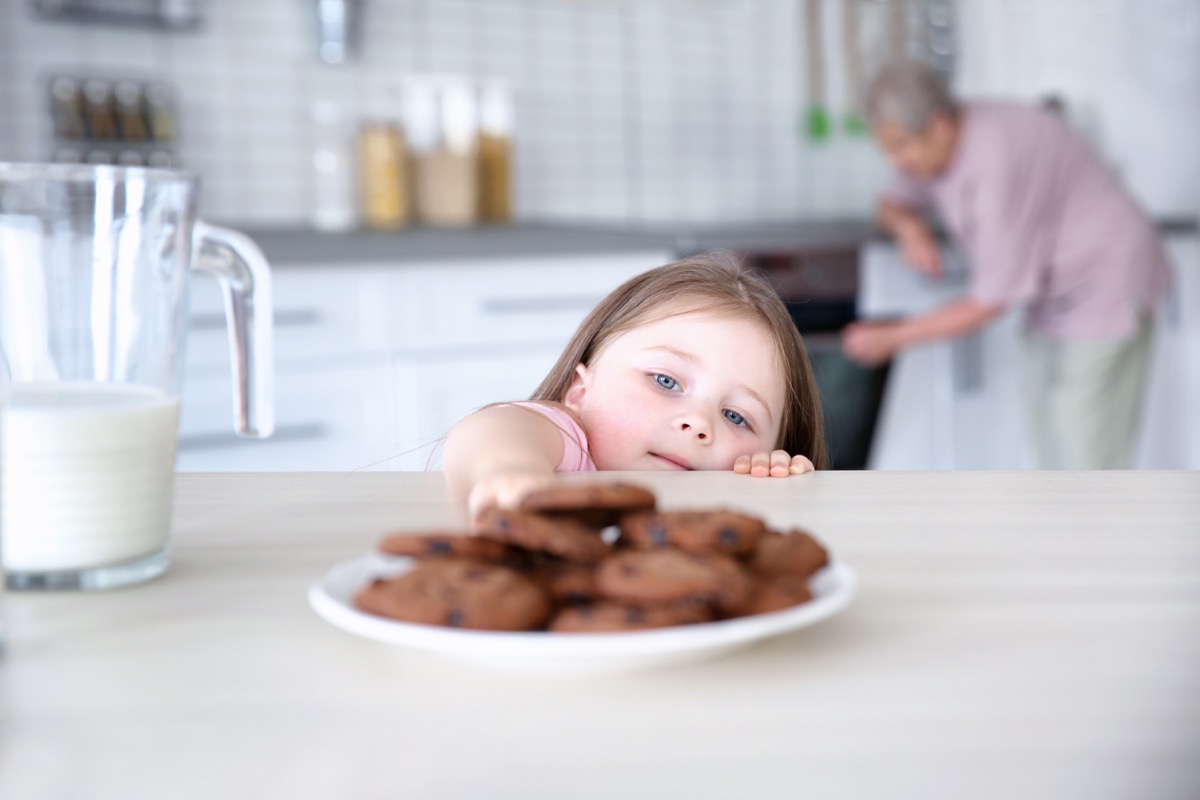
Along those same lines, Param believes children should also be taught to take any food that they touch. "I can't count the number of times children touch six different items on the snack table before deciding which one is acceptable," she says. "We're not into germ-sharing. Take what you touch, please."
14
Not double dipping
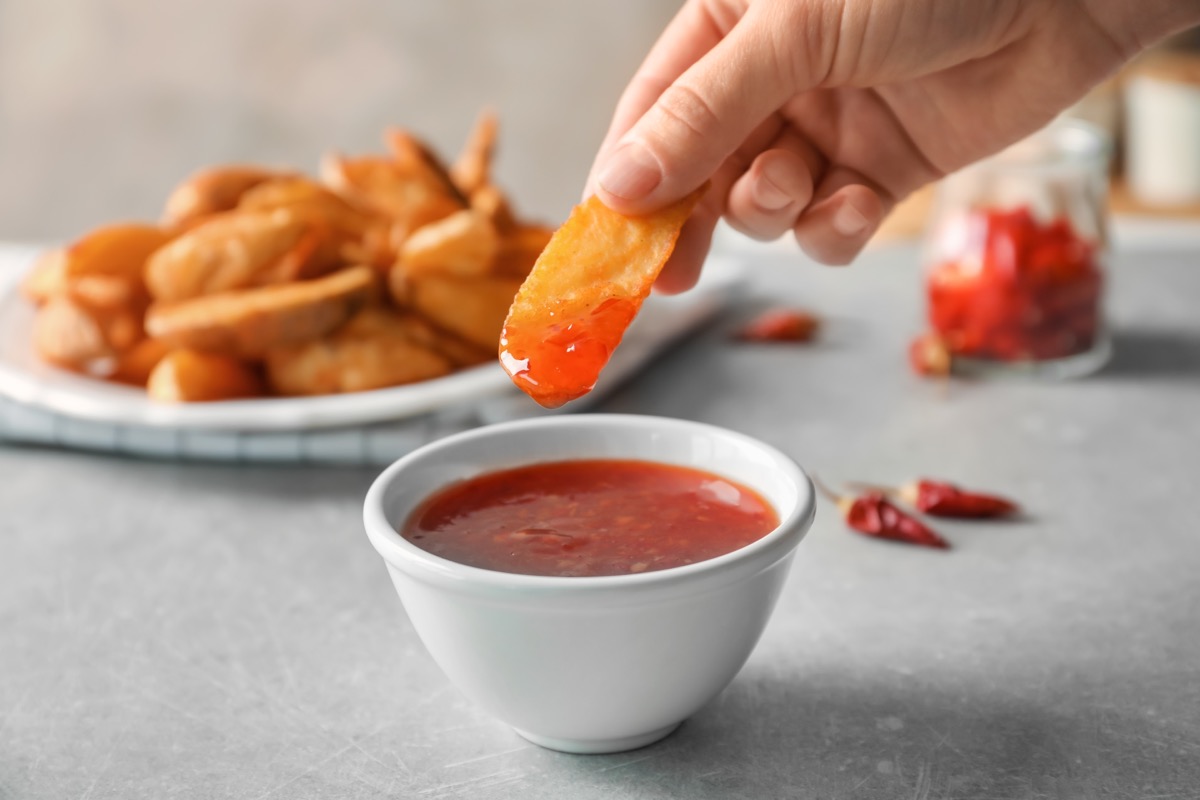
In order to make their best impression on playdates and at restaurants, children should be taught to avoid double-dipping. "I think most kids today forget that it's better to just take a bit on your own plate rather than going back into the main bowl," says Param.
15
Chewing with their mouth closed
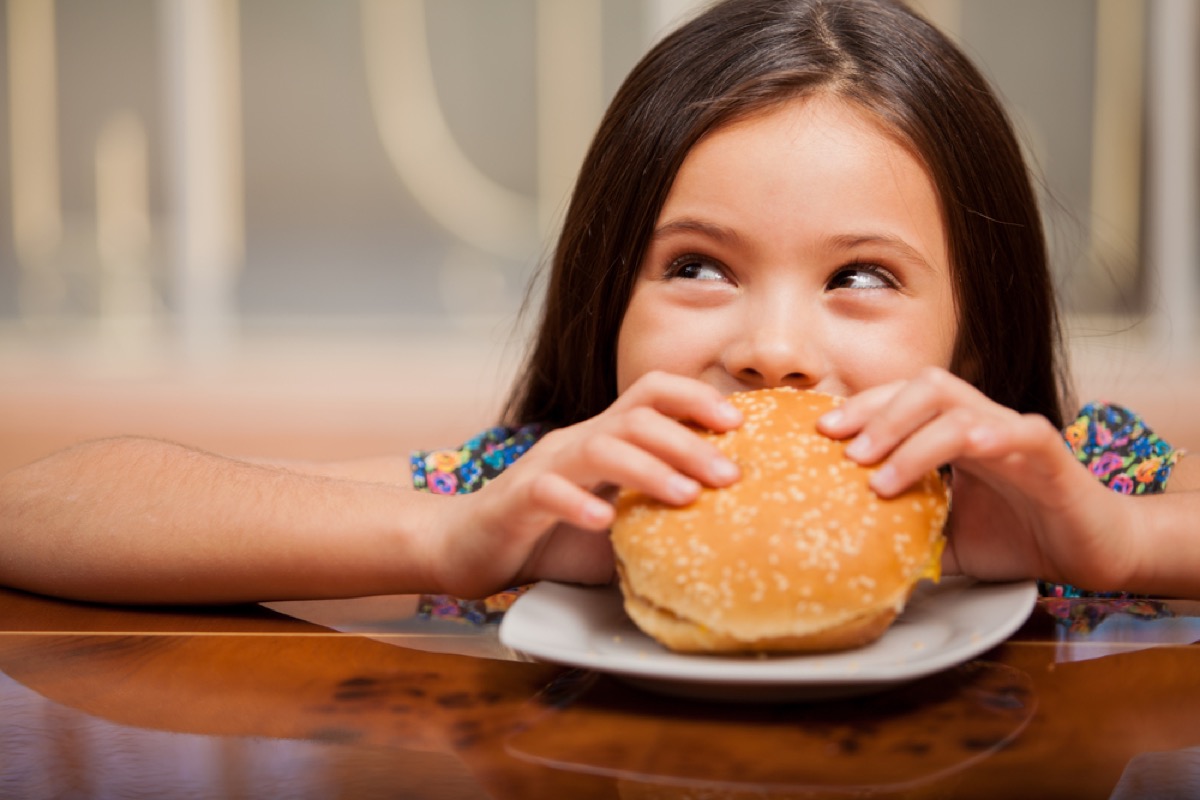
According to Alexandra Fung, the CEO of Upparent, an interactive event calendar space for children and families, everyone should be vigilant about not chewing with their mouth open or attempting to speak with a mouth full of food.
16
Keeping a napkin in their lap during meals
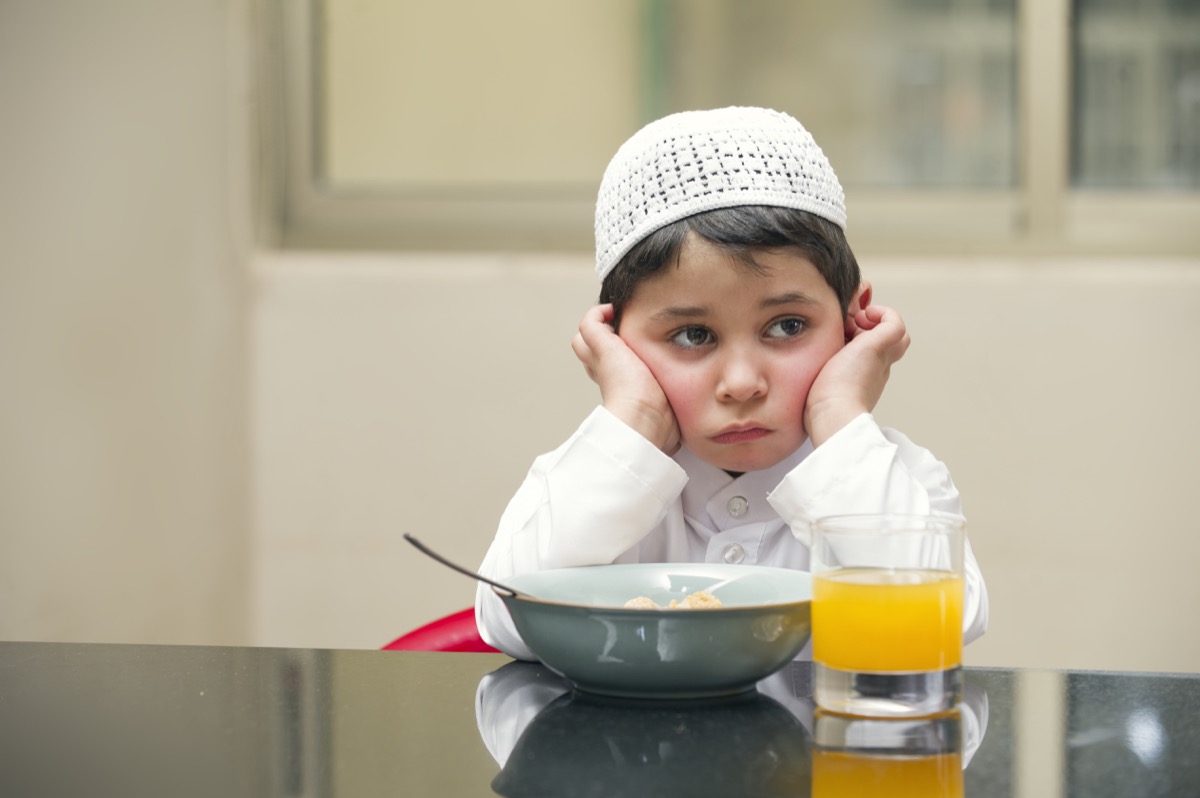
Though it may seem old-fashioned, Fung emphasizes the need for children to have structure at the dinner table. She urges that kids should be taught to keep their napkin on their lap, with their "non-dominant hand in [their] lap."
17
Asking to be excused from the table

Unfortunately, this basic table manner is not taught to many children anymore. "To me, it's just common courtesy to remain at the table until everyone finishes eating," says Param. "If for some reason you really do need to leave right away, ask to be excused first instead of just leaving. Otherwise, it comes off quite rude."
18
Holding the door for others
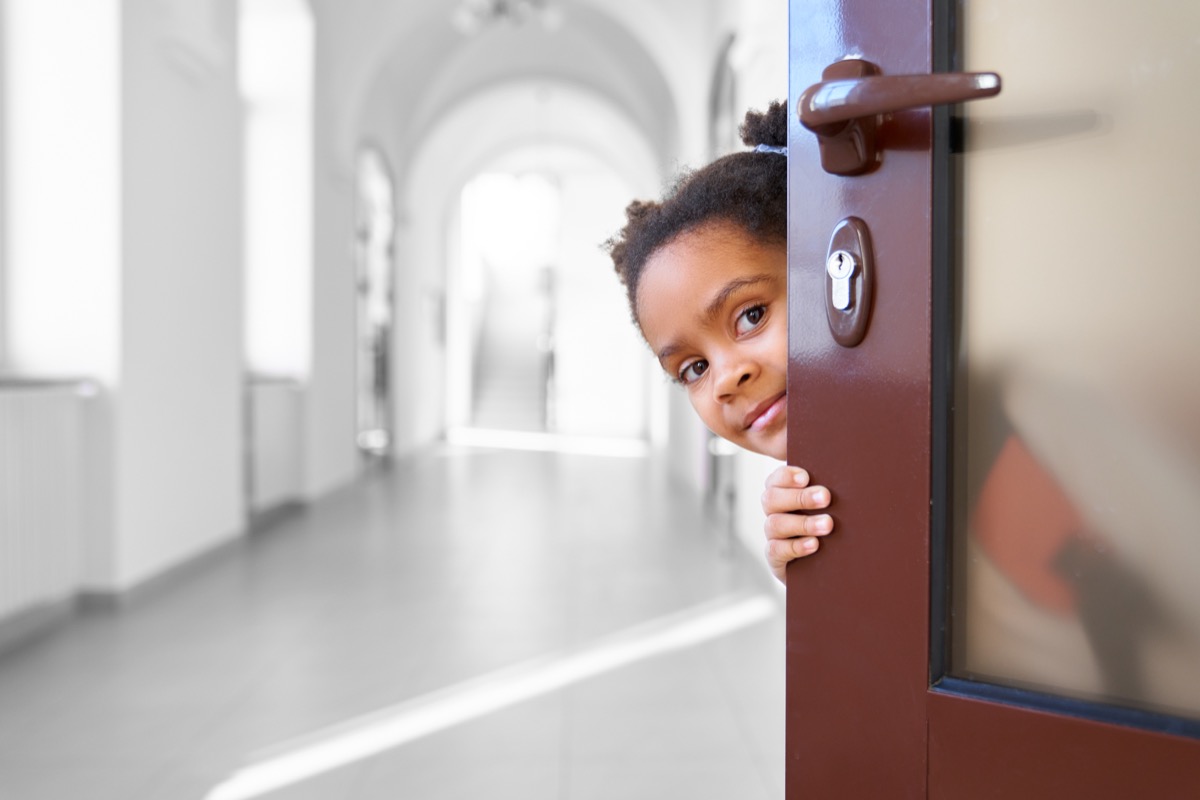
Kids are less likely to hold the door for people these days, even if it's their teacher who needs a hand. "I don't know how often I've got books piled in my arms and yet nobody is willing to hold a door open for me anymore," says Param.
19
Using an indoor voice
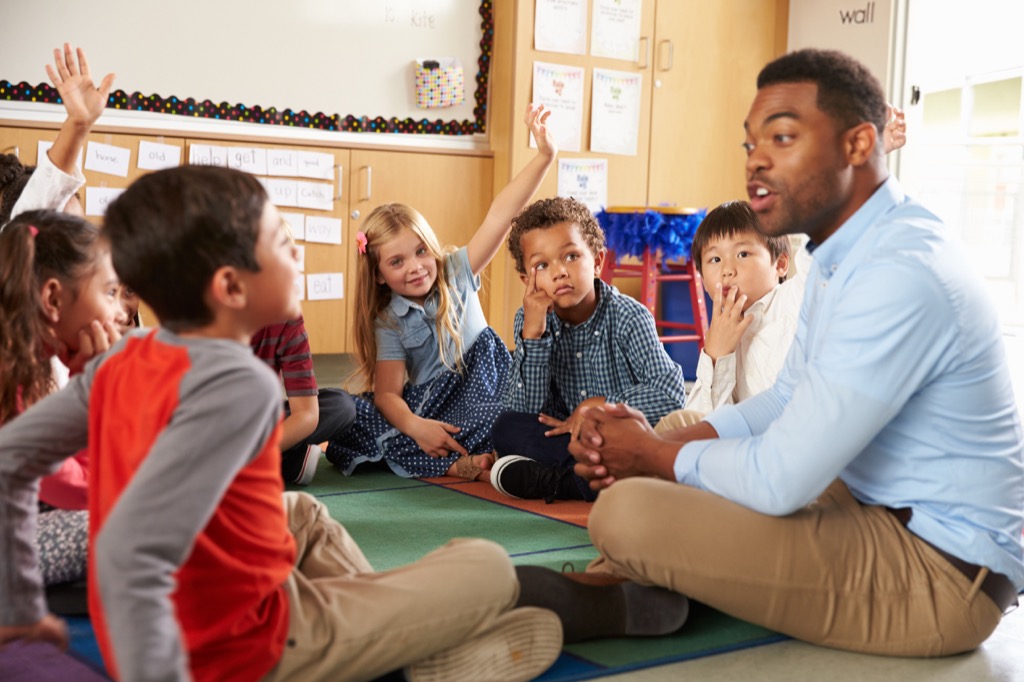
Though tantrums and outbursts are nearly unavoidable when children are involved, Miguel A. Suro, a Miami-based attorney and lifestyle writer at The Rich Miser, says that children should still use their indoor voices in public places.
It's important to teach your kids to "avoid being loud and hyperactive in public places such as stores and restaurants," he says. That way, children will have a certain level of respect for others at a young age.
20
Avoiding invading personal space
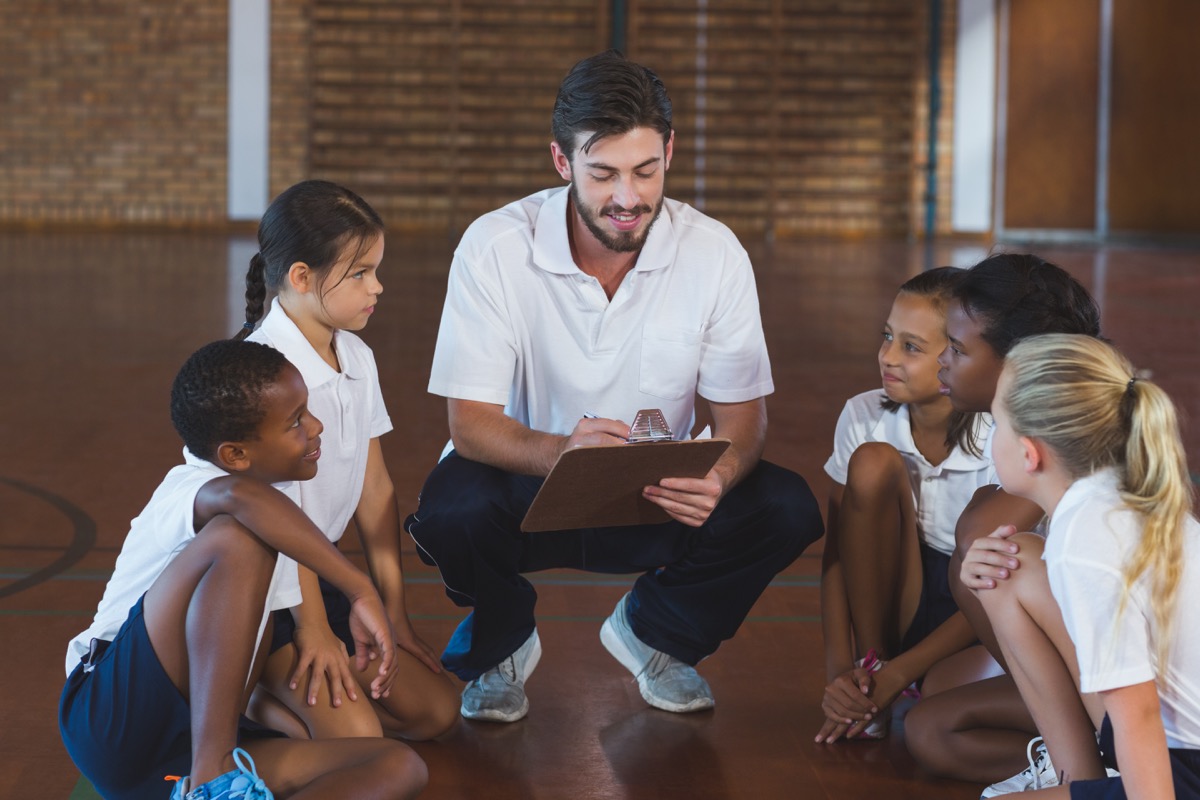
Similarly, Antoinette Kuritz, a mother and former teacher, stresses the importance of teaching children to respect the personal boundaries of others, and believes that this is an old-fashioned value that is no longer taught to the current generation. According to Kuritz, children should have "parameters that allow others to be comfortable in their presence, or at least not uncomfortable."
21
Saying "please," "thank you," and "excuse me"

According to Martin, children are no longer using the words "please," "thank you," and "excuse me" as frequently as they once did. Though the present generation is still taught to use these words, she faults a lack of reinforcement.
"If you need to get by someone or if you accidentally bump into someone, say 'excuse me' instead of just pushing by," says Param. On that note, she also stresses the importance of uttering that same phrase when you make any bodily noises—no more loud belches followed by uncomfortable silences, Gen Zers! And for more etiquette lessons, check out these 20 Social Etiquette Mistakes You Should Stop Making by Age 50.
To discover more amazing secrets about living your best life, click here to follow us on Instagram!





















